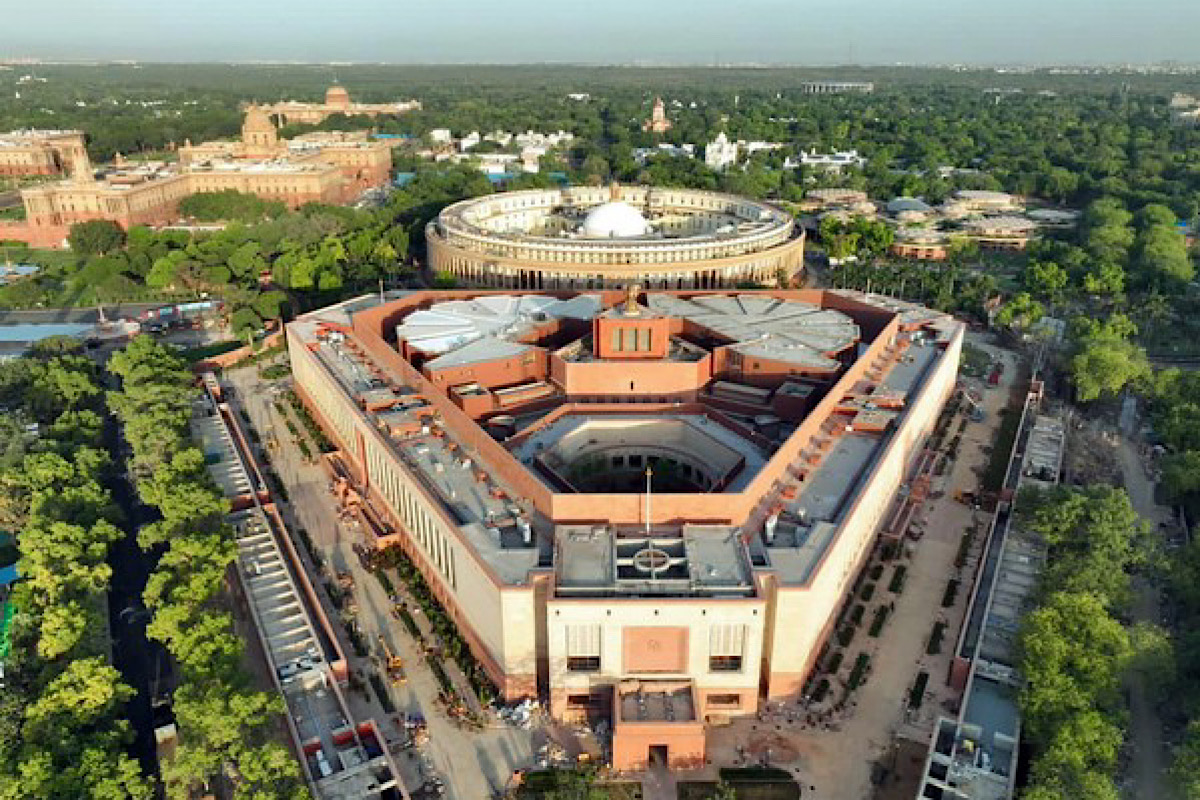All complaints, amendments included: JPC chief on Waqf (Amendment) Bill
Responding to the Opposition's concerns regarding the committee's meetings and the Bill’s progress, Pal said all complaints and amendments have been included.
Pal said that the government has a specific purpose for bringing this bill that the the properties handed to the Waqf should help the backward Muslims and women.

Visuals of Parliament Building (File Photo/ANI)
Ahead of the Joint Parliamentary Committee meeting on the Waqf Amendment Bill 2024, the Chairperson of the Committee, Jagdambika Pal, said on Thursday that they will give maximum opportunities to the maximum number of people from minority organizations while discussing the bill.
Pal said that the government has a specific purpose for bringing this bill that the the properties handed to the Waqf should help the backward Muslims and women.
“The government presented the bill and it has been referred to the JPC today. It is the Speaker’s mandate that after it is referred to the JPC, we have to give it till the last days of the first week of the next session. So, it is natural that the JPC meeting is starting today. All the members of our JPC will discuss this bill in it. Whatever the concerns are we will discuss them in the JPC. We should not only discuss this JPC with our members who are stakeholders, the Waqf (Amendment) Bill the Act that we are amending, but we should also call the chairmen of the State Waqf Boards, the organizations of our minority communities whether it is All India Muslim Personal Law Board, Jamiat Ulema-e-Hind or others. We will give opportunities to the maximum number of people,” he said.
Advertisement
“The government has a specific purpose of bringing this bill that the people in the country who hand their properties to the Waqf, their purpose is that they are dedicating it for religious or charitable purposes. If everyone fulfils this sacred sentiment, it will help common Muslims, and women, and improve their education,” he added.
Meanwhile, during the meeting, representatives of the Minority Affairs Ministry would brief the members on the bill and the amendments proposed in the bill. Representatives of the Law Ministry will also be present.
Advertisement
The parliamentary committee examining the bill has 21 members from Lok Sabha and 10 from Rajya Sabha.
The government introduced the bill in the budget session of Parliament which concluded earlier this month and it was decided to send the legislation to JPC for further scrutiny.
The Waqf (Amendment) Bill, 2024, Waqf Act provides for the renaming of the Waqf Act, 1995, as the Unified Waqf Management, Empowerment, Efficiency and Development Act, 1995.
It seeks to clearly define “Waqf” as Waqf by any person practising Islam for at least five years and having ownership of such property and ensure that the creation of Waqf-alal-aulad does not lead to the denial of inheritance rights to women.
It also seeks to omit the provisions relating to the “Waqf by user”, provide the functions of the Survey Commissioner to the Collector or any other officer not below the rank of Deputy Collector duly nominated by the Collector for the survey of waqf properties, provide for a broad-based composition of the Central Waqf Council and the State Waqf Boards and ensure representation of Muslim women and non-Muslims.
The bill seeks to provide for the establishment of a separate Board of Auqaf for Boharas and Aghakhanis.
The bill seeks to omit section 40 relating to the powers of the Board to decide if a property is Waqf property, provide for filing of accounts of waqf by mutawallis to the Board through a central portal for better control over their activities, reform the Tribunal structure with two members and provide for appeals against the orders of the Tribunal to the High Court within a specified period of ninety days.
Minority Affairs Minister Kiren Rijiju, who introduced the bill in the Lok Sabha, has said that the JPC will submit its report to the Lok Sabha by the last day of the first week of the winter session of Parliament.
Advertisement